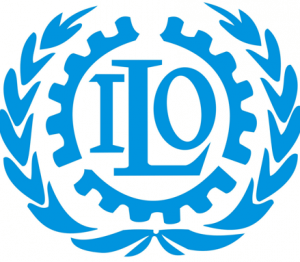ILO launches productivity ecosystems project for Ghana’s garment, shea sectors
 The International Labour Organisation (ILO) and its social partners, on Wednesday, February 22, launched the Productivity Ecosystems for Decent Work Programme in Ghana.
The International Labour Organisation (ILO) and its social partners, on Wednesday, February 22, launched the Productivity Ecosystems for Decent Work Programme in Ghana.
The project is expected to address the challenges in Ghana’s garment, textile and shea sectors to enhance productivity and promote decent work, while supporting economic growth and national development.
As of 2022, ILO data shows that, globally, 473 million people are still looking for jobs, with 290 million youth neither in education nor the labour force, while 214 million workers lived below poverty line.
Also, two billion workers are in the informal sector and do not engage in a freely chosen and productive work, lack access to rights at work, social protection and social dialogue.
Mr Gilbert Fossoun Huongbo, the Director-General of ILO, at the launch of the project in Accra, said the situation required that all social partners worked collaboratively to solve challenges within the productivity ecosystem.
“If we’re to meet the multiple challenges and address the deficit in decent work, we must work together. It is only by working together that we could move through a new global coalition to improve the social systems and contribute to reducing the inequalities that have been widening since COVID-19,” he said.
Mr Huongbo was confident that the project would help improve productivity in Ghana’s garment and textile and shea sectors, provide decent and sustainable work to citizens and improve living standards.
He said: “By launching the project today [in Ghana], what ILO will be doing is to put in place productivity ecosystems for decent work as a pathway to promoting economically, socially and environmentally productive growth.”
He, therefore, called on Ghana’s Tripartite partners, Ministries, Departments and Agencies and the private sector to support the implementation of the project, and said: “It is only with a wholistic coherence on all sides that we can achieve our objectives.”
Mr Huongbo said there was the need to strengthen interlinkages among productivity, growth and decent work, such that productivity gains were shared equally between employers, workers and local communities.
Mr Ignatius Baffour-Awuah, the Minister of Employment and Labour Relations, said the presence of the ILO DG at the launch of the project marked the highest form of bilateral relations between Ghana and its social partners.
Mr Baffour-Awuah said the Productivity Ecosystems for Decent Work Programme would be an accelerator to job creation in Ghana and a way of promoting local made goods from the garment and textile industry.
He said selecting garment and textile and shea among other critical productive sectors was a difficult choice, but focusing on shea, for example in the Northern sector of Ghana, would boost economic activities in the region.
“Even though Ghana is a unity State, the southern part of Ghana has more concentration of economic activities than the norther sections. So, concentrating on shea, which is a predominantly northern product, is a way of boosting economic activities in the north and balancing the development divide,” he said.
The Ambassador of the Swiss Confederation to Ghana, Ambassador of the Kingdom of Norway to Ghana and the Federal Minister of Labour and Social Affairs, all pledged support to making the project successful.
The ILO’s Enterprises and Employment Department developed programme, is sectors funded by the Swiss State Secretariat for Economic Affairs (SECO) and the Norwegian Agency for Development Cooperation (NORAD).
It will be implemented by the Ministry of Employment and Labour Relations (MELR), with support from the Trade Union Congress (TUC), Ghana Employers’ Association (GEA), Ministry of Trade and Industry (MoTI) and the Ghana Statistical Service (GSS).
Under the project, government policies would be tailored to formalising enterprises to ensure that newly created jobs provide better protection and incomes for workers.
That would be done by strengthening the manufacturing and agro-processing sectors to absorb low-skilled workers, while encouraging national and regional vertical integration of value chains.
Source: GNA
